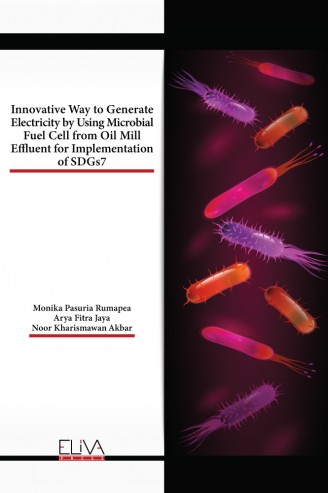
Innovative Way to Generate Electricity by Using Microbial Fuel Cell from Oil Mill Effluent for Implementation of SDGs7
$ 36.5
Description
According to data from the United States Department of Agriculture, Indonesia is the largest producer and exporter of palm oil worldwide, which produces 85-90 % of total palm oil production. Palm oil industry produces liquid waste called POME (Palm Oil Mill Effluent) about 190.06 million ton in 2021 which can have a serious impact on the environment. The utilization of the POME reduces the volume of effluent therefore significantly reducing methane gas emission which is categorized as greenhouse gas and also reducing our carbon emission by approximately 50,000 Ton CO2. One of the utilizations of POME is to make an alternative renewable energy by using eco-friendly Microbial Fuel Cell (MFC) technology that can support environmental sustainability. MFC is a bio-electrochemical technology that produces electricity by using the electrons derived from biochemical reactions catalyzed by bacteria. Klebsiella variicola (K. variicola) was investigated using Dual Chamber MFC with carbon brush as electrodes and separated using cation exchange membrane Nafion 117. POME wastewater with Chemical Oxygen Demand (COD) 28,18 mg/L with further sterilization was subjected as substrate for MFC operation. K. variicola was isolated from municipal wastewater as well as from biofilm of MFC as inoculum. Result of power density from microorganisms inoculated from municipal wastewater and controlled inoculum was also studied. MFC showed maximum performance with power density of 4.5 W/m3 calculated using a digital multimeter.
